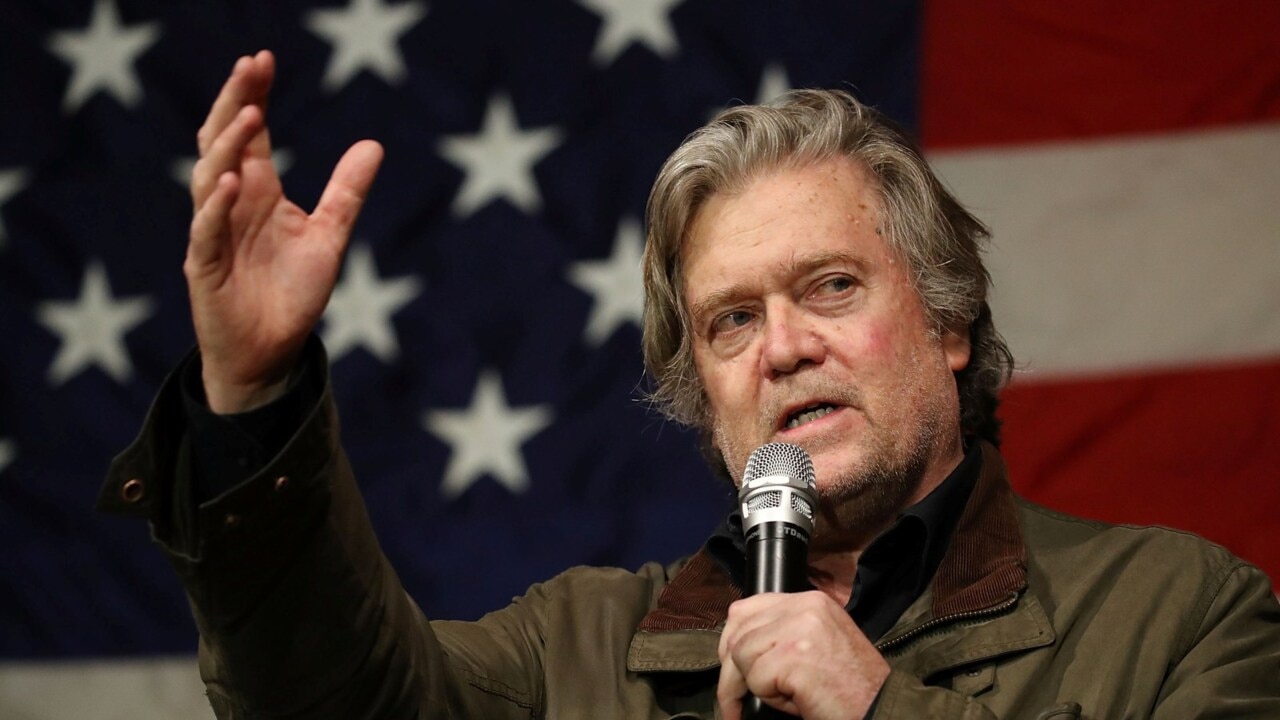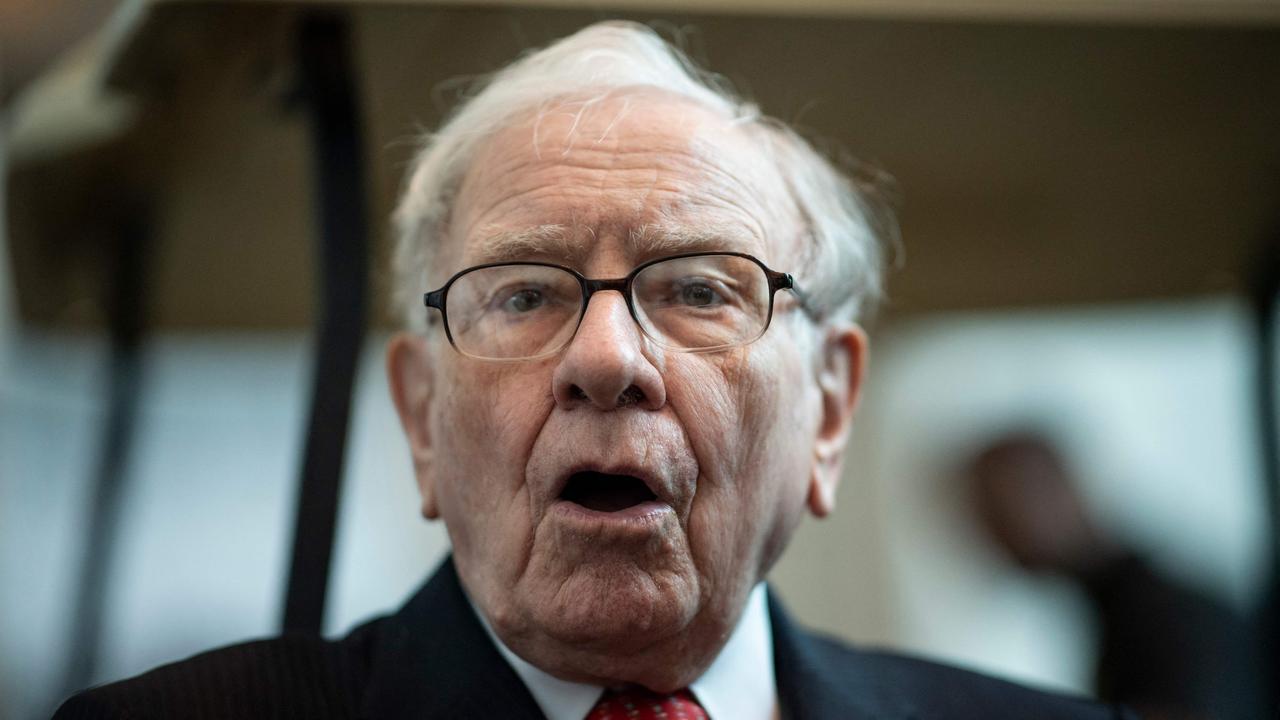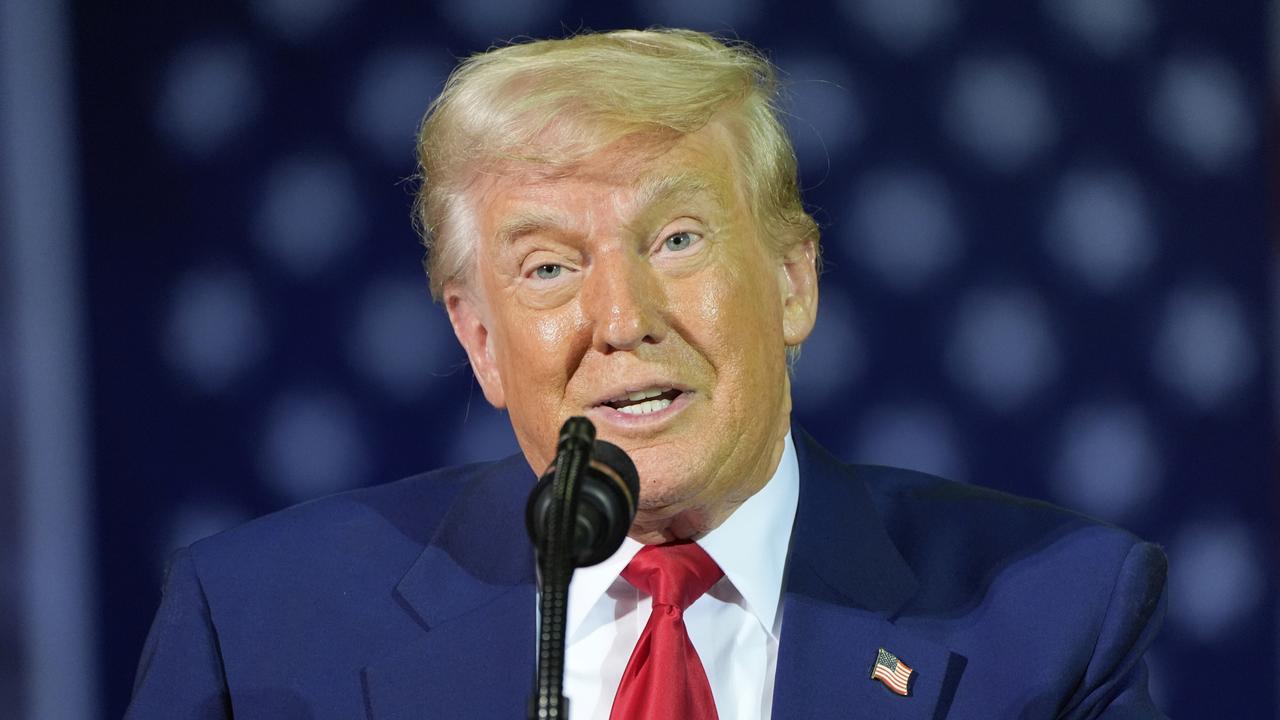Steve Bannon found guilty of contempt of Congress
Steve Bannon faces jail after a jury determined the former Trump adviser defied a subpoena issued by the House January 6 committee.

Former Trump adviser Steve Bannon has been found guilty of contempt of Congress, handing a victory to the Justice Department and the House select committee investigating the Jan. 6, 2021, attack on the Capitol.
After about three hours of deliberation, the federal jury on Friday delivered guilty verdicts on the two counts of contempt he faced for unlawfully defying a subpoena issued by the Jan. 6 panel, which was seeking both documents and testimony. Mr. Bannon will be sentenced at a hearing in October and faces a minimum sentence of 30 days and a maximum of one year in prison for each count.
The verdict could help congressional investigators obtain testimony from recalcitrant witnesses in the probe and future investigations. The outcome also gives the Justice Department a boost ahead of a similar contempt of Congress trial scheduled for November against former Trump adviser Peter Navarro, who like Mr. Bannon refused to cooperate with the Jan. 6 committee.
David Schoen, one of Mr. Bannon’s lawyers, said they would appeal on the grounds that pretrial rulings improperly blocked jurors from hearing key evidence and arguments.
“You will see this case reversed on appeal,” Mr. Schoen said, adding that the verdict was a “foregone conclusion” because of those pretrial rulings.
Justice Department lawyers argued during the weeklong trial that Mr. Bannon “thumbed his nose” at Congress by defying the subpoena.

In closing arguments, prosecutor Molly Gaston said Mr. Bannon “has contempt for our system of government, and he does not think he needs to play by the rules.” Evan Corcoran, one of Mr. Bannon’s defense lawyers, disputed that narrative, saying the deadlines the subpoena set for compliance were malleable and that Mr. Bannon tried to negotiate with the committee over when he would appear and what he could testify about.
“Those dates in the subpoena were placeholders, essentially,” Mr. Corcoran said. “The dates in the subpoena are still under negotiation.” Mr. Corcoran also called the case “infected by politics” because the prosecution’s main witness, congressional lawyer Kristin Amerling, has worked for Democratic Party lawmakers, donated to Democrats, and was in a book club with Ms. Gaston, the prosecutor.
Mr. Bannon’s lawyers didn’t call any witnesses during the trial and instead tried to poke holes in the government’s case.
Mr. Bannon, 68 years old, worked as a strategist during the beginning of the Trump administration.
Federal prosecutors indicted Mr. Bannon in an unrelated fraud case in 2020, alleging a scheme to siphon hundreds of thousands of dollars from a crowdfunding campaign to build a wall along the U.S.’s southern border with Mexico. In January 2021, former President Donald Trump pardoned Mr. Bannon, who had pleaded not guilty and was awaiting trial in Manhattan federal court.
Mr. Bannon wasn’t a White House employee around the time of the 2020 election but continued to advise Mr. Trump during that period. The night before the January 2021 riot at the Capitol, Mr. Bannon said on his podcast: “All hell is going to break loose tomorrow.” The House committee subpoenaed Mr. Bannon last September, demanding that he turn over documents and appear for a deposition last October. The Justice Department in November last year charged Mr. Bannon with two counts of contempt of Congress.
Contempt of Congress is a rarely charged misdemeanor offense carrying a maximum of one year in prison for each count.
Mr. Bannon said in court filings that he didn’t cooperate with the committee because of legal advice he received and concerns about executive privilege, a legal doctrine that protects the confidentiality of some White House communications.
U.S. District Judge Carl Nichols last week blocked Mr. Bannon from directly making those arguments to the jury, saying they weren’t supported by the law. Those pretrial rulings have hobbled Mr. Bannon’s defense, his attorneys said.
“What’s the point in going to trial here if there are no defenses?” one of Mr. Bannon’s defense lawyers, David Schoen, said last week.
Just over a week ago, Mr. Bannon made a last-minute offer to testify to the Jan. 6 committee, adding he would prefer to do so at a public hearing. Mr. Bannon said his change of heart came after Mr. Trump waived executive privilege.
Prosecutors had argued that executive privilege was never properly invoked in the first place.
Judge Nichols said that Mr. Bannon’s offer to testify was irrelevant to whether he defaulted on the subpoena months earlier.
The Wall Street Journal






To join the conversation, please log in. Don't have an account? Register
Join the conversation, you are commenting as Logout